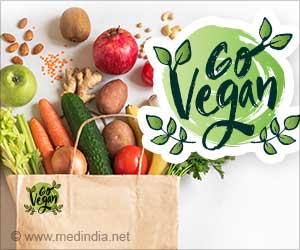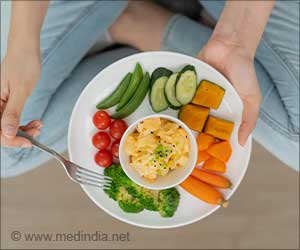Understand the challenges of adopting an all-plant diet, also known as a vegan diet, for health, ethical, and environmental reasons. Read more.
- The risks of an all-plant diet (vegan), aligning health, ethics, and the environment is prevailing concerns
- While veganism offers health advantages, it requires vigilance to prevent deficiencies in nutrients like B12, iron, and omega-3s
- Balancing nutritional needs and seeking professional guidance is crucial for sustained well-being on this dietary path
Carbohydrate Intake Imbalance
Vegan diets might lead to imbalanced carbohydrate intake and blood sugar fluctuations. Care should be taken to avoid excessive consumption of refined carbohydrates, replacing them with complex alternatives (1✔ ✔Trusted SourceEmbracing a plant-based diet
Go to source).
Insufficient High-Quality Protein Intake
Ensuring adequate protein intake without relying solely on carbohydrate-heavy sources can be challenging for vegans. Protein is essential for satiety, weight management, and muscle maintenance. Plant based diet is also known to cause sudden weight gain due to increased craving and excessive consumption of high calorie vegetarian snacks. It is necessary to be mindful of the portion intake while snacking and never overdo it.Risk of Disordered Eating
Vegans and vegetarians could be more prone to orthorexia, an eating disorder characterized by an unhealthy fixation on healthy eating. Such patterns could exacerbate existing eating disorders and require professional intervention.Anemia Risk Due to Limited Heme Iron Intake
Iron-deficient anemia, a widespread nutritional deficiency globally, is of particular concern for both vegans and vegetarians. While plant-based foods do contain iron, it is in the form of non-heme iron, which is less easily absorbed by the body. This can lead to symptoms like fatigue, especially affecting women of child-bearing age.Considerations for addressing this include monitoring ferritin levels, potentially using iron supplements, and exploring alternative sources of iron like cricket protein.
Increased Depression Risk with Inadequate Omega-3 Intake
Vegans might face a heightened risk of depression due to lower omega-3 fatty acid consumption and an imbalanced intake of omega-6 fatty acids. While algae-based sources can provide omega-3s, maintaining the proper balance can be challenging. Omega-3 levels, vital for fetal brain development among other functions, should be monitored through blood tests.Vitamin B12 Deficiency Vulnerability
Vitamin B12, found exclusively in animal-derived foods, poses a significant deficiency risk for vegans. Consensus among nutrition experts suggests that vegans should consider supplementing with high-quality vitamin B12 to avoid irreversible health consequences.Impaired Mineral Absorption on Plant-Based Diets
Zinc deficiency is another concern for vegans and vegetarians due to the potential inhibition of zinc absorption by plant compounds like phytic acid. Addressing this may require increasing zinc intake and potentially using supplements to support immune function.Quality iodine sources from seafood are absent in vegan and vegetarian diets, raising the risk of iodine deficiency, which can lead to thyroid issues. Supplementation and consumption of iodine-rich foods like seaweed are recommended.
Calcium deficiency is a notable concern in dairy-free, plant-based diets. While plant sources provide calcium, their absorption can be hindered by compounds like phytates and oxalates. This deficiency may heighten the risk of bone fractures.
Processed Soy Concerns
Soy serves as a common protein source for vegans, but processed forms, such as tofu and soy-based meat substitutes, could pose health risks due to hormone interference and potential metal intake. Opting for fermented soy products and minimizing processed soy consumption are advisable.Pregnancy and Children
Pregnant women and growing children have increased nutrient needs. Ensuring adequate nutrient intake on an all-plant diet during these life stages requires careful planning and monitoring.Beyond the aforementioned concerns, there are other potential risks associated with a vegan diet, such as social isolation due to dietary restrictions, histamine intolerance, triggering gluten intolerance, and inadequate vitamin D intake. While a vegan diet might be suitable for short-term goals, it could lead to nutritional deficiencies and other health issues over the long term, particularly if not supervised by a healthcare professional and supported by appropriate supplementation.
In summary, while adopting a vegan diet can bring about positive outcomes, it is essential to be aware of potential pitfalls and prioritize balanced nutrition and consult a healthcare professional before making significant dietary changes for optimal health and well-being.
Reference:
- Embracing a plant-based diet - (https://news.stanford.edu/report/2021/05/06/embracing-plant-based-diet/)
Source-Medindia
















